Ditto Adds Digital Signage Zones, Display Takeovers, YouTube Signage
The takeover begins now. Three major Ditto digital signage updates help you bring the right signage to the right moment.
3 min read
Squirrels Updated on January 3, 2025
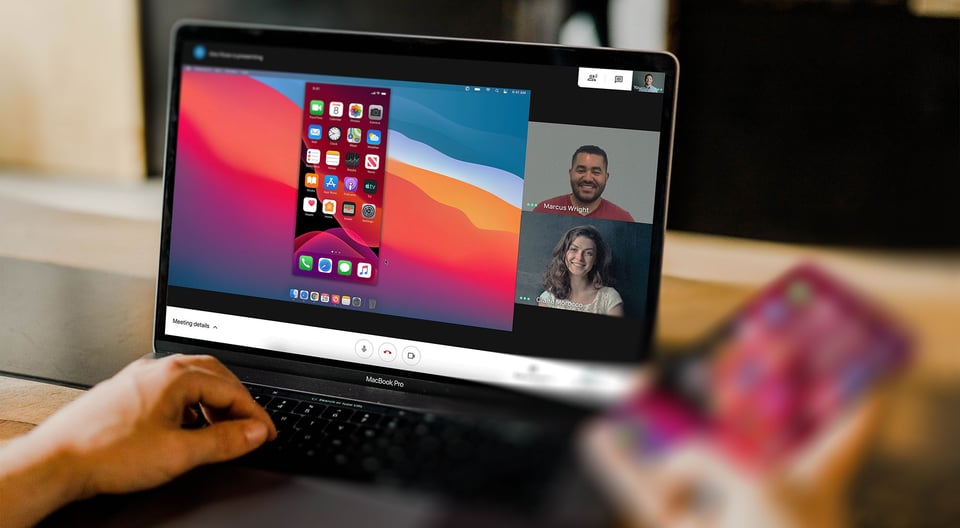
This quick guide shows you how to share your iPhone, iPad and Android screen while using Google Meet. Google Meet is the all-in-one virtual meeting app for schools and businesses using G Suite. People use Google Meet to teach classes virtually, hold online meetings, conference with clients and make remote video calls.
There are two ways to share your device screen in Google Meet:
Method 1 is limited and only works if you’re using the Google Meet app on your phone or tablet. Method 2 offers more features, multitasking and a more professional meeting experience using a computer app called Reflector. This method also shows how to share a computer screen.
If you use Google Meet on a computer, skip to method 2.
This method only uses your phone/tablet, including iPhone 12. Multitasking is not available.
Open the Hangouts Meet app on your phone or tablet. (Hangouts Meet is the official Google Meet mobile app — it is not the same thing as Google Hangouts.)
Start or join a meeting.
Tap the ellipsis (three dots) button in the top right corner of your screen.
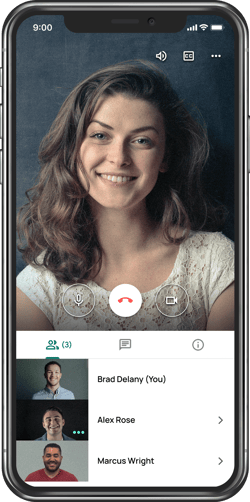
Tap Present Screen.
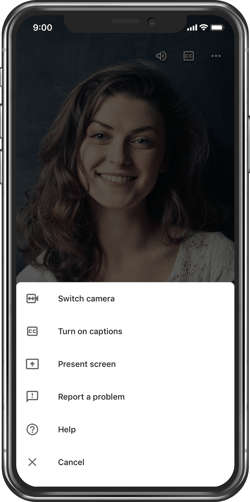
A menu on your phone/tablet will pop up to indicate where you’ll share your screen. Select Meet.
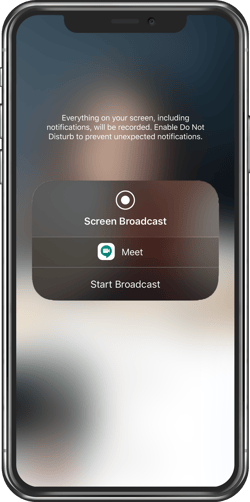
Tap Start Broadcast. After a brief countdown, your phone or tablet will share its screen with everyone in the meeting.
You won’t be able to multitask or see others in the meeting, but your colleagues will be able to see your mobile screen, like this:
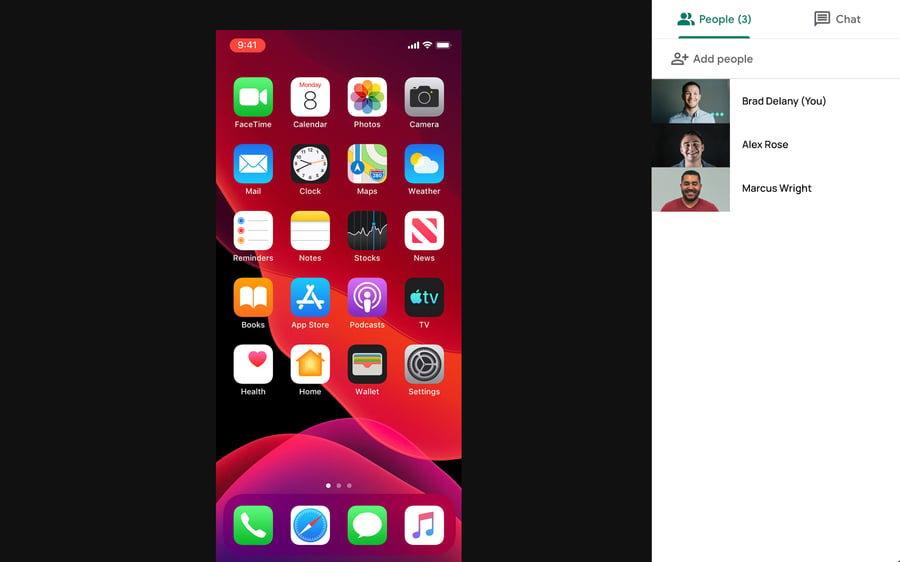
Note: You will only be able to see what’s on your mobile device screen at this time.
This method is better for sharing. You can multitask, use more features and collaborate easier because it uses both your mobile device and your computer. Sharing this way allows you to do all of the following at the same time:
Use a different videoconferencing platform? This method also works with Zoom, GoToMeeting, Microsoft Teams, Cisco Webex, Slack and Discord.
Download and install Reflector on your Mac or Windows computer.
Make sure your computer and mobile device are connected to the same wifi network.
Launch Reflector on your computer.
Open Google Meet on your computer and join a meeting.
On your mobile device, open the screen mirroring/cast options and begin screen mirroring to Reflector.
Not sure how? Check these out:
Important: To make sure your mobile device screen shares properly, hover over your device in Reflector and click the green settings cog next to the device name. Ensure "Always on Top" and "Fullscreen" are toggled off.
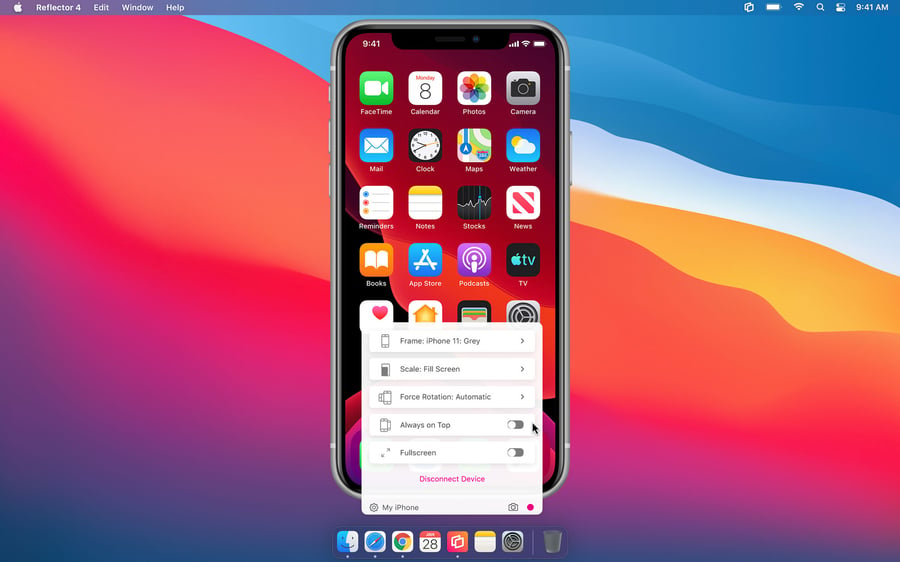
These must be toggled off to successfully begin sharing your device screen over a videoconferencing platform like Google Meet. If you prefer, you can toggle these settings back on after you begin presenting your computer screen.
In Google Meet on your computer, click the Present Now button and select the option to share a window.
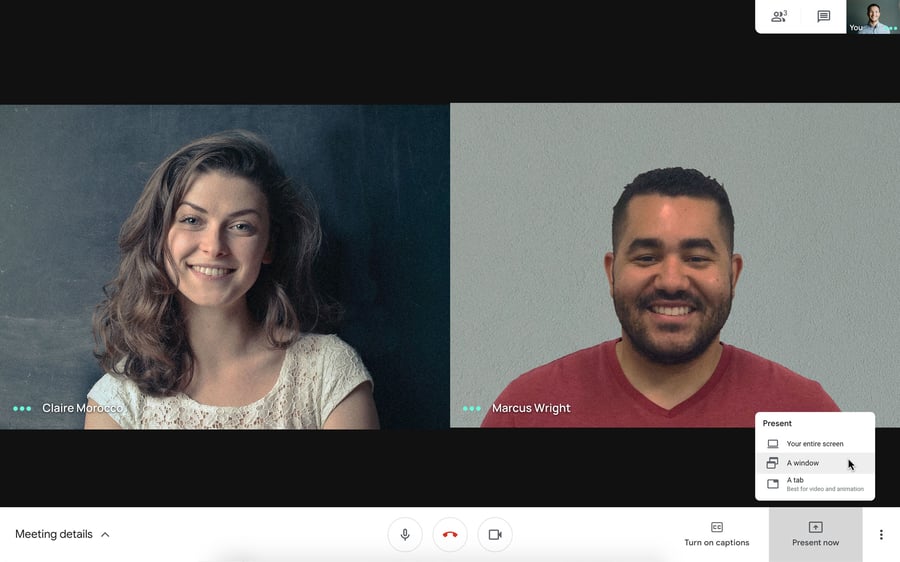
Select the option with the Reflector icon. It will be the name of your mobile device.
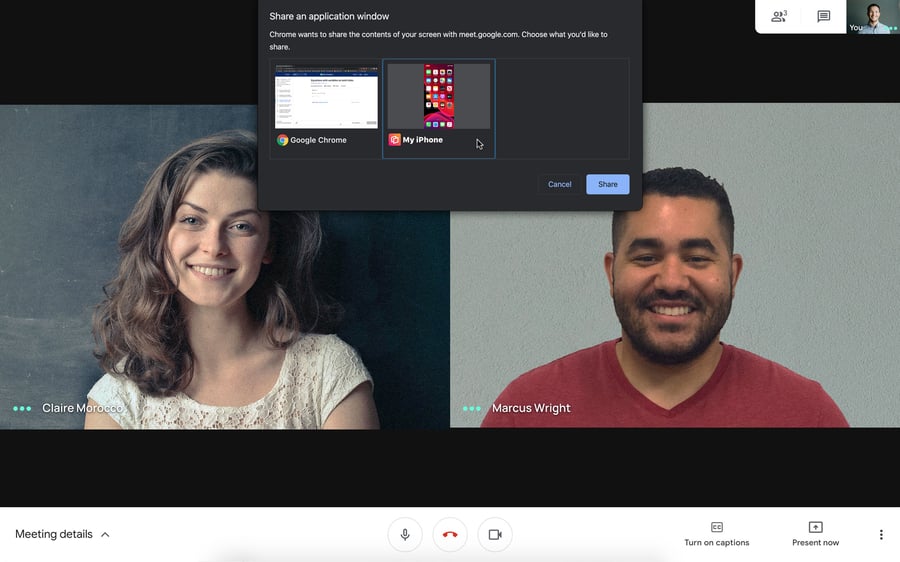
Tap Share.
Now you’re wirelessly sharing your mobile screen to your meeting in Google Meet. You can present from your mobile device while working on your computer screen and seeing your teammates in video chat at the same time.
Everyone will be able to see what's on your phone screen. Learn how to turn off notifications while screen mirroring.
Get Reflector today to work, share and collaborate better.
You can share your whole desktop so your mobile device and computer screen are visible at the same time. To do this, just select “Your entire screen” instead of “A window” in Step 7.
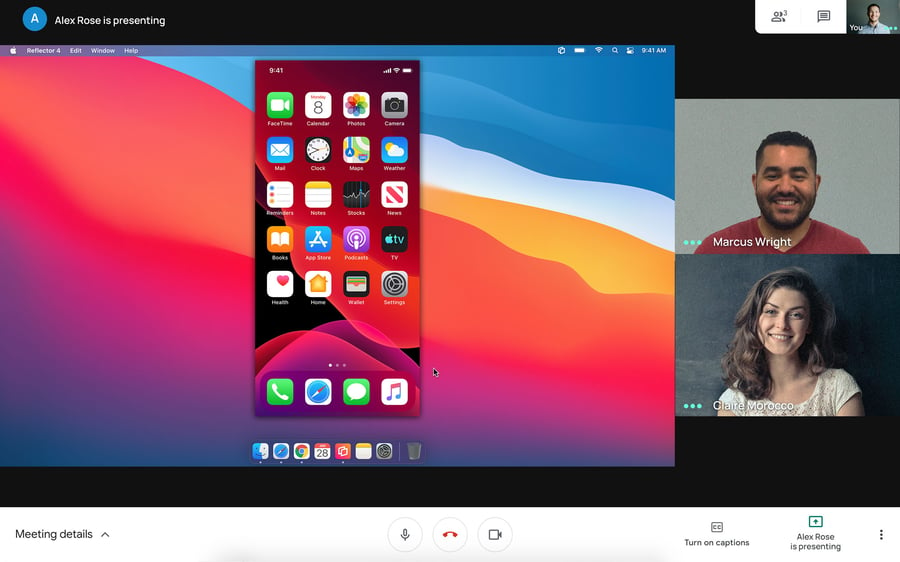
Updated 9/14/21
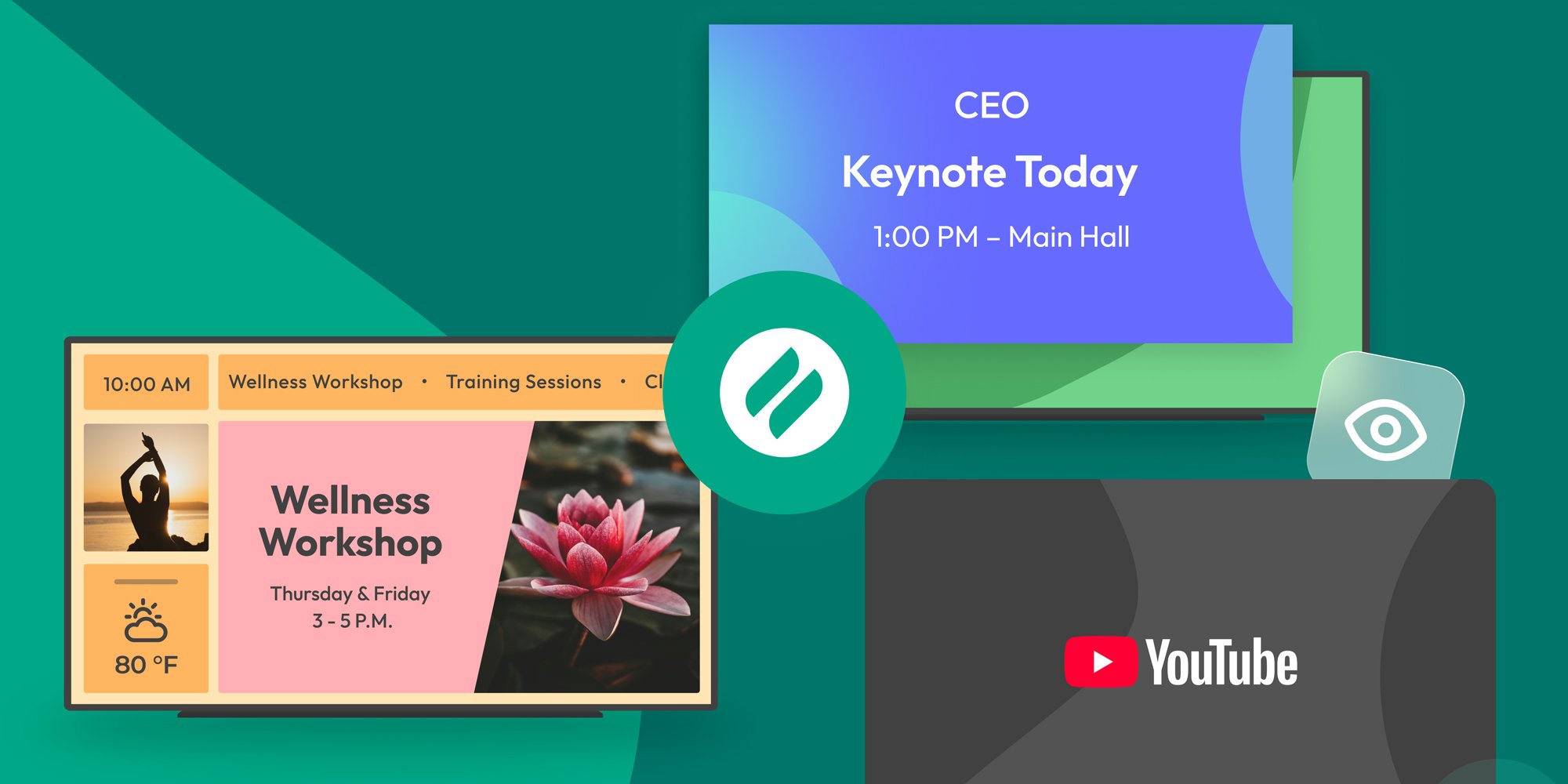
The takeover begins now. Three major Ditto digital signage updates help you bring the right signage to the right moment.
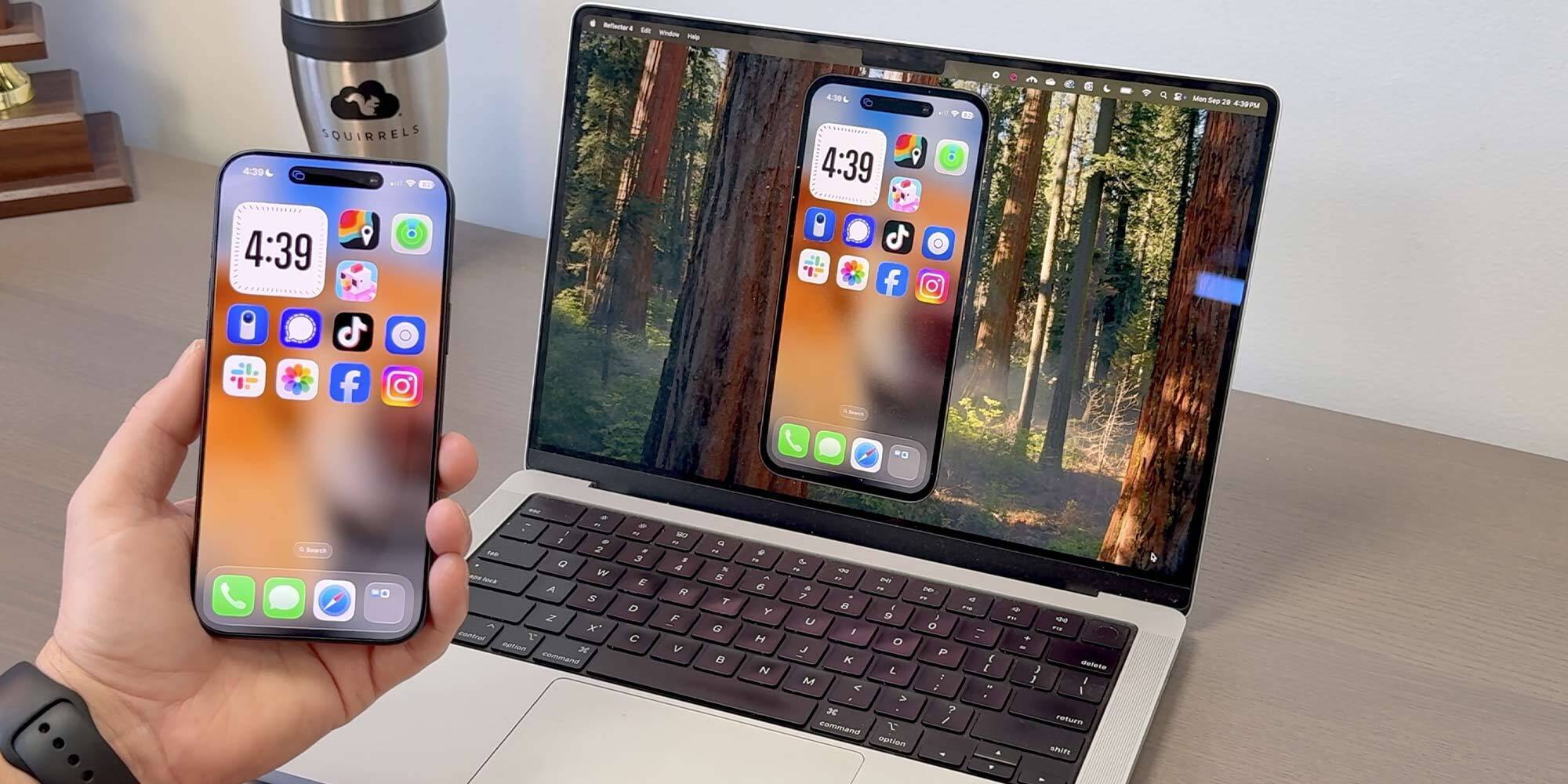
iPhone 17 makes screen sharing and media streaming fast and easy. This guide shows you how to wirelessly mirror iPhone 17 to TVs, projectors or...
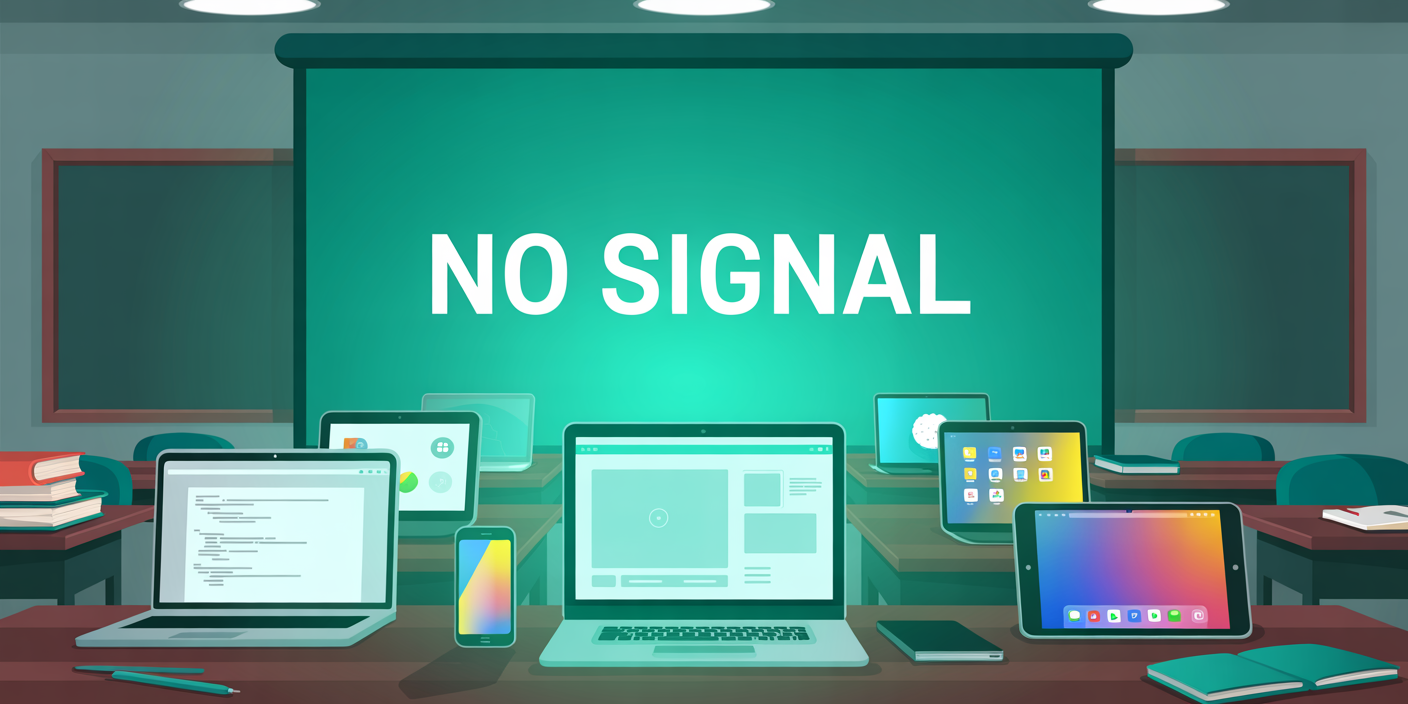
HDMI cables. Document cameras. DVD players. Dongles and adapters. Many classrooms still rely on these old technologies, but students and educators...
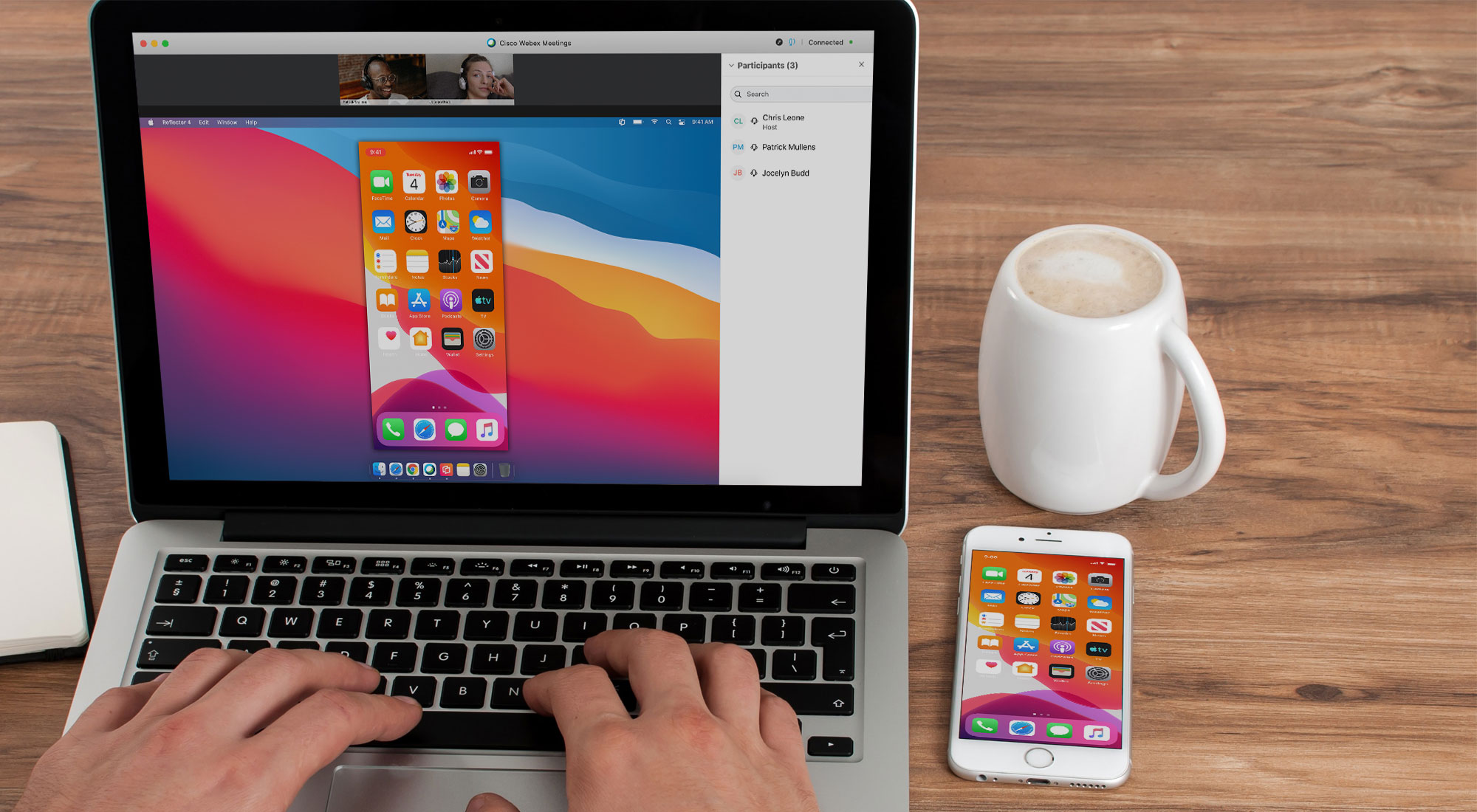
This quick guide shows you how to share your iPhone, iPad and Android screen while using Cisco Webex. Cisco Webex is virtual meeting software that...
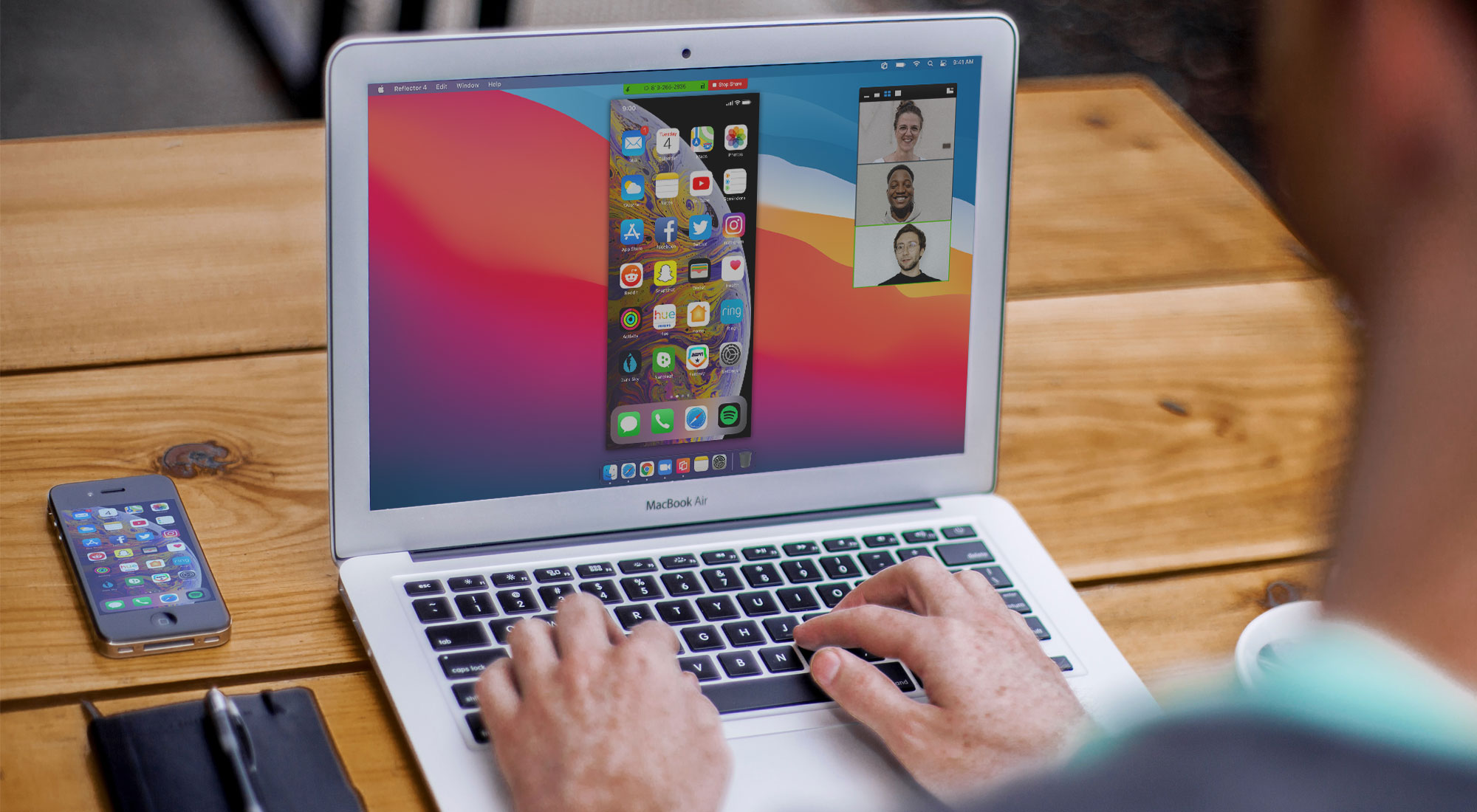
Zoom has quickly exploded in popularity due to its remote conferencing and video chat capabilities. While not without its share of criticisms over ...
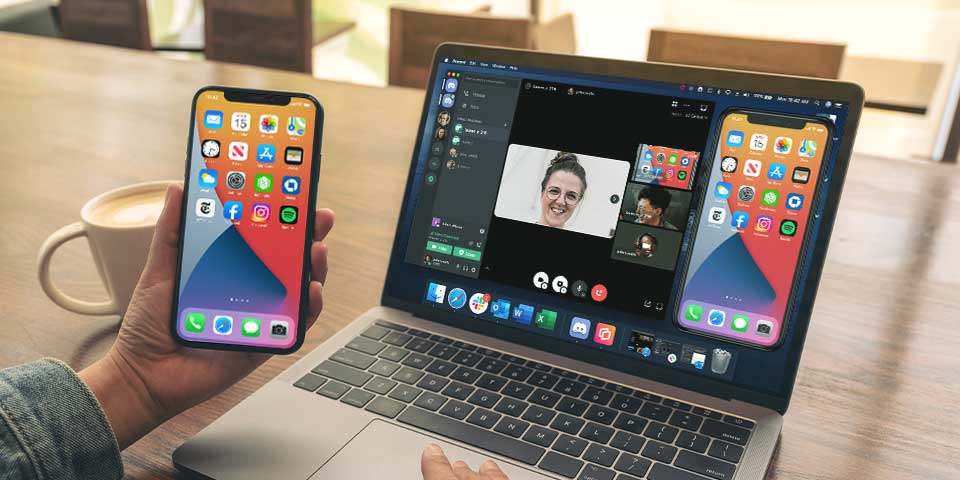
Discord is an instant messaging platform that allows users to communicate with text messages, media files, voice calls and video calls in private...

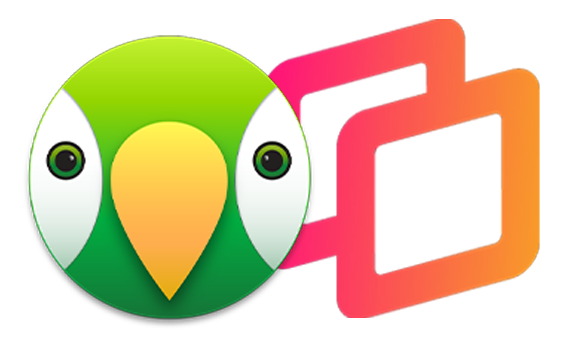
Save when you buy AirParrot and Reflector together. One AirParrot and one Reflector license for use on either MacOS or Windows.
BUY US$

Save when you buy AirParrot and Reflector together. One AirParrot and one Reflector license for use on either MacOS or Windows.
BUY US$